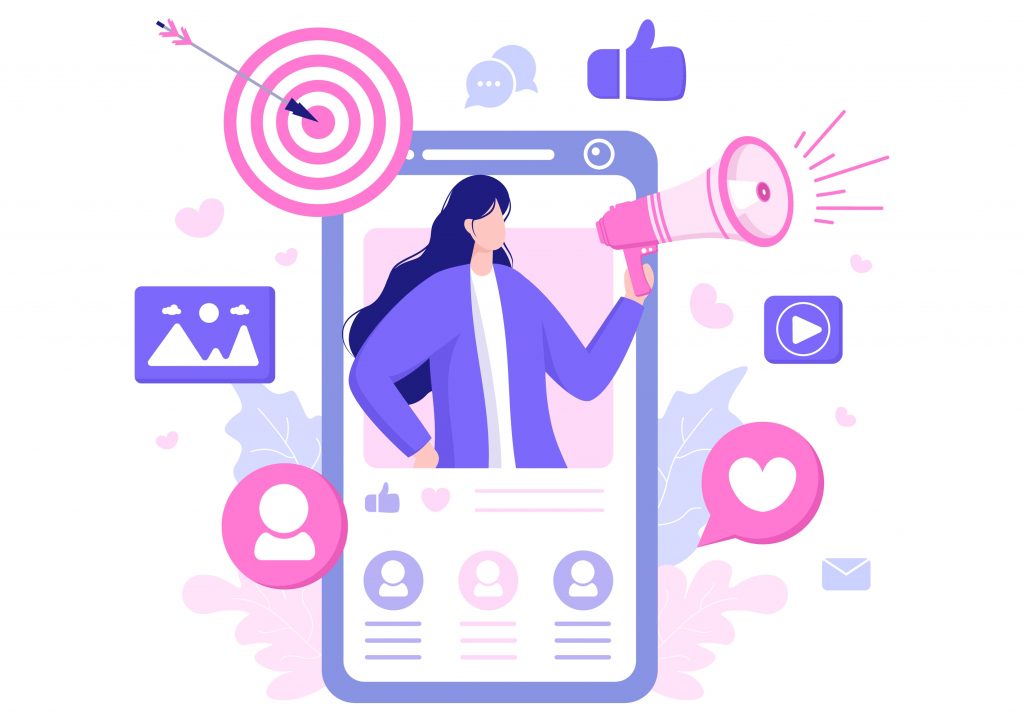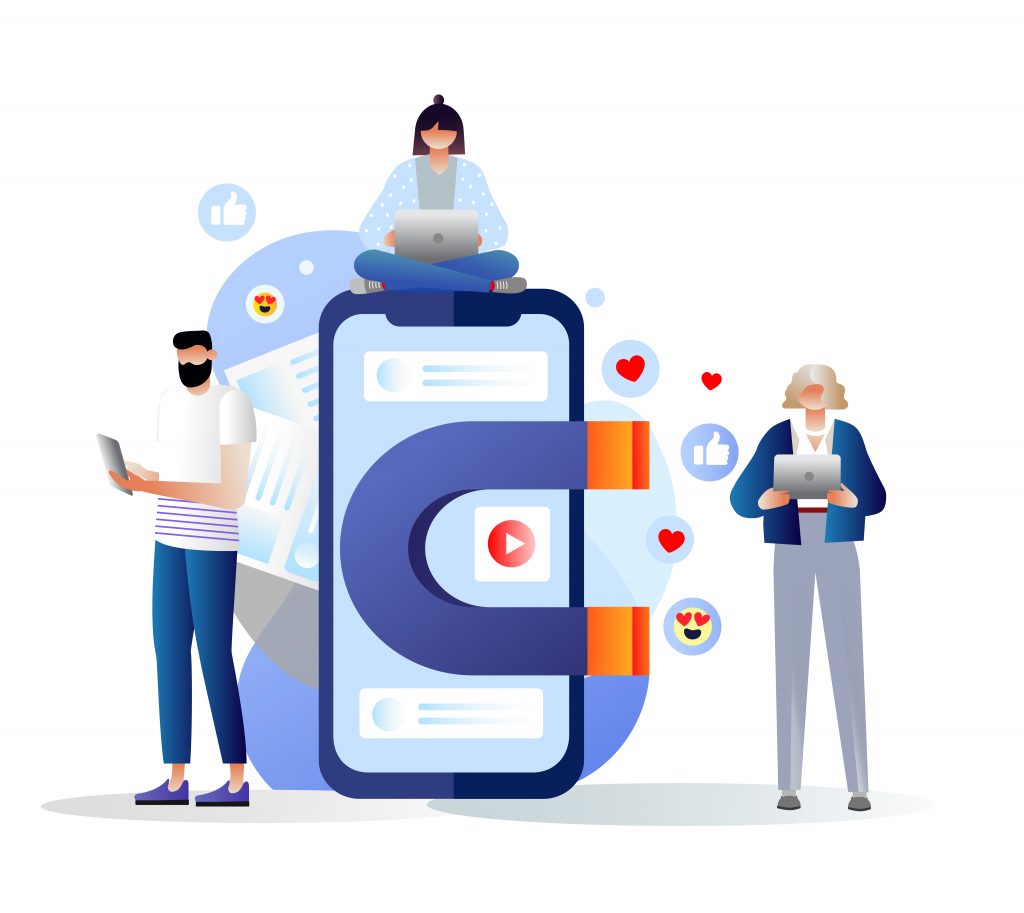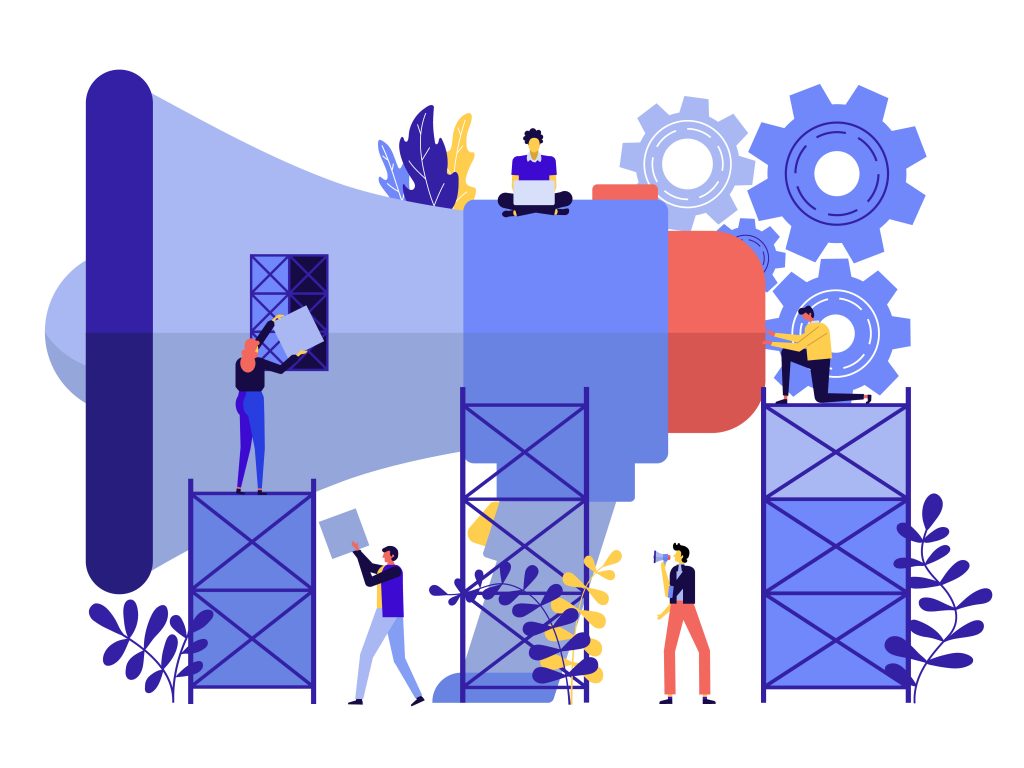Community Managers - Bringing people to your game and your game to people
When you think about a game dev team, be it indie small or triple A big, you're most likely picturing programmers writing and tinkering with the code to make sure everything runs as smoothly as possible, artists drawing, modeling or building captivating worlds and characters, composers and sound designers creating satisfying clashing sounds or haunting soundtracks, that will bring a tear to your eye years after the game is launched.
All of these people are essential in putting together your game, but the task of bringing it to the people is the job of a Community Manager.
Think about your favorite game and how have you found out about it. Did a friend recommend it to you? Did you see your preferred streamer play it live? Did you discover it by reading a review? Did you see an awesome artwork of one of the characters and thought “Oh, I would really like to play that game”? All of these and much more are done by two very important roles, that are usually neglected when we are thinking about the games closest to our hearts: the Social Media Manager and the Community Manager.
Community Managers are the soldiers of the front line, always making sure that your game is an enjoyable experience that makes everyone feel welcome. They are also the shield against a sea of angry gamers whenever there is a delay or a new bug appears, buying as much time for the developers as possible. Last but not least, they are the people that make sure your game becomes someone else's favorite game.

Community Manager, Social Media Manager, or both?
It is important to start by differentiating between the management of your social media channels and the one of your community.
Social Media Management consists mainly of interacting as the voice of your studio. It is a one-to-many type of communication and it is mainly focused on creating and posting promotional materials for development news and events. A Social Media Manager is interested in things like engagement and reach, while trying to bring as many new players to your game as possible.
Community Management starts after the new players have arrived, by welcoming them to your game's community and making sure that they feel heard and involved. A Community Manager listens to and engages in any conversation they can find that is related to your game while monitoring, moderating, and keeping their community active at the same time. They offer a more intimate and informal type of interaction serving as a bridge between you and everyone in the digital space.
These two roles are complementary to each other and, because they rely on similar skill sets, it might be convenient for a small team to have a single dedicated person for both social media management and community management. As your studio grows, the need for dedicated people for each function will become more apparent.
What does it take to be a community manager?
Simply put, a little bit of everything. An ideal Community Manager is tech and social media savvy, with strong communication skills, creative, empathic and extremely familiar with your game.
They serve many functions, from customer service to social media monitoring, ready to jump in in any discussion related to your game or studio. They keep track of the latest news in the industry and spread your community everywhere they go, from Facebook, Twitter, Snapchat, YouTube, Instagram, Pinterest to Discord, Reddit, and so on. They are your game's biggest fan and serve as a connection between you and your players, taking the pulse of your fanbase and delivering their findings to the rest of the team, making sure that your events and updates are indeed the enjoyable experience your team has designed them to be.
A Community Manager does exactly what their job title says, they manage your community of players across all social media platforms and provide a safe and welcoming digital environment for everyone interested in your game.

What to do if you cannot afford a dedicated Social Media and Community Manager?
Ideally you will need two dedicated people to handle your presence online: a Social Media Manager to act as the general voice of your studio and a Community Manager to act as an ambassador.
However, this might not be possible for a small indie team with a limited number of people and resources. In that case, try to find that person in your team who best relates to your player base and, if they agree, let them give a voice to your game both inside and outside your community. The tone you initially set will define the way your fans feel about you as developers and will serve as a guideline for further interactions with your players. Because of this, a person who understands your player's wants and needs and who is already part of similar communities is best suited to share your messages and gather people around your game.
Keep in mind that Community Management is a full-time job, so be mindful of your teammates efforts and prioritize development and communication accordingly. Discuss and plan your events and updates early on, delegate asset creation as much as possible to keep a balanced workload and make sure your Social Media and Community Manager has all the resources they need beforehand.
Your community is pretty much alive, and it will not stop growing just because the developers have turned off their computers for the day. Support your community manager and be available to help them whenever the need arises.
When to start building and managing your community?
The earlier the better! You might be tempted to shy away from showing early and unpolished aspects of the game. Do not be. Following the 80-20 rule (give value 80% of the time, self-promotion 20% of the time) is the easiest at this stage of development as you have plenty of strategies, tips and tricks, workflow advice or even funny bugs that your audience will appreciate and enjoy. It is a common occurrence in this industry to never feel 100% satisfied with the end result and, most of the time, you will have that nagging sensation that there is still something that can be improved. Take pride in your accomplishments and do not be scared to show a “work in progress” with your community, be it a new mechanic, a sketch of a new character or a 3D model that is just starting to take shape. Treat your community like a group of friends and be excited to share your story with them. Let your game and community grow together.
This is also a great time to give your community a sense of contribution, to engage them with small and fun brainstorming sessions and ask them what they would like to see in this project, making them feel actively involved in the development process and strengthening the bond between your game and them.
When to start building and managing your community?
Play your game
Whether you're an active developer in a small team or a dedicated Community Manager who has just arrived on the project, playing and understanding your game is essential for relating to your player base. Mastering the game also prepares you to answer most of the questions your fans will bombard with you with be it tips and tricks or the most commonly found bugs or even deep secret lore.
Take a step back and try to look at it through a player's point of view. Think of where you might want to go to ask for advice, voice your concerns or even brag about your in-game accomplishments. Look at your competitors' community hubs and find the best practices that can be applied for your game as well.

What goes where?
A steady presence on all the relevant platforms is recommended, but keep in mind that your posts and interactions will need to be tailored to suit the audience of each social media channel you decide to use. Prioritize platforms according to your game's strong suits. A good starting point is to focus on the type of content that each platform excels in and see how your project fits into that category. Is your game filled with great artwork that you are proud of? Instagram, Pinterest and even Facebook are great platforms for sharing them with your audience. Do you have an amazing game engine trick to awe your fellow developers? The gamedev communities on Reddit are a great place to share your insight. Funny bug? Snap a gif of it and share it on Twitter. For any kind of content you can produce there is sure to be a platform that you can share it on. Keep in mind that your audience does not consist only of gamers and players, but also of potential business partners. Start building your LinkedIn page and network early on and make sure to keep a constant presence there as well. You never know when a publisher might be looking.
Choose and build a main hub
It is important for your players to have an official hub for your game, a place where they can find out everything new about the project and get all the information they need directly from you, the developer. Your main hub can be anywhere, from your steam community page to an official subreddit or even a dedicated Discord server. The choice is entirely up to you so choose the one that fits your game the best.
As an example, if you have a multiplayer game that is heavily reliant on communication and teamplay you might want to consider setting up an official Discord server. It offers a fast and direct type of interaction with your audience, while the bot integration can help simplify almost everything, from basic moderation to automatic shares of your posts on other social media channels. Keep your hub organized by providing a dedicated space for all types of discussions: from general topics about the game to fanart, LFG and, of course, the off-topic channel. Don't forget to add plenty of dedicated voice rooms so that people who form teams in the LFG channel can start playing right away. Remember that besides ensuring the communication between your studio and your fans, you are also facilitating the communication between players themselves.
Your community spreads across all social media channels so there is a very big chance that your players will congregate to other platforms as well, be it Facebook fan groups or fan made subreddits. While you should focus your efforts on your official hub, try to keep track of the secondary hubs as well and be aware of the topics discussed there.
How to manage your community?
Assemble and apply a clear set of rules
This is the most important and delicate part of the moderation process. Your hub's rules and guidelines can serve as your greatest ally or your biggest enemy. A good set of rules will serve as the backbone of any disciplinary actions you might need to take as a moderator. There are many possible situations you have to consider in which you might need to warn, mute, block or even kick someone out of your community. Try to come up with rules that will encompass all these scenarios. Be clear in the outcome of breaking each and every one of them and apply them fairly. Remember, these rules are meant to help you and your community by providing a fair and equal ground for everyone. They are not meant to control and dominate; they are meant to protect.
Monitor, listen, engage - don't be afraid to be spontaneous
As previously mentioned, a Community Manager monitors, listens and engages any conversation of interest for your game, outside and inside your official hubs. Keep an eye on the major topics of discussion between your players, whether they are related to your game or not. As much as you might want to always be up to date with the latest news and trends, you cannot possibly expect to cover the same digital ground as everyone in your fanbase. You might find your community rallying behind an event or topic that you had no idea about. Don't be afraid to stray from your premade calendar. Return some of the support your players are showing for your game and join in the causes and activities that are important for your community, even if it's something as small as a new meme or as big as an important civil rights movement.
Empower your community
From time to time the job of a Community Manager may sound like a one man army, but it does not have to be that way. Passionate and dedicated fans are your biggest resource on the road of building, managing, and moderating your community.
If you see a player that is constantly getting involved in helping others navigate your game, diffuses tense situations when nobody else is around, or is just a positive and engaging presence in your community altogether, consider assigning them the role of moderator.
These people will set a precedent for future members and will be a great help to you in keeping your community safe and welcoming towards new and veteran players alike.
As a rule of thumb, validate and recognize anyone that is constantly representing your game/studio in a positive light no matter the platform or channel they are on.
Conclusion
Community Managers and Social Media Managers are responsible for bringing people to your game and your game to people. They are the guardians and facilitators of your project, making sure that the best parts of your game are experienced as intended, that your fans have plenty of playmates to team up with or go against and that nobody is able to ruin the fun you've worked so hard to provide.
So next time when you're thinking about assembling a team for a new project remember that bringing your game to your audience is just as important as creating it.

